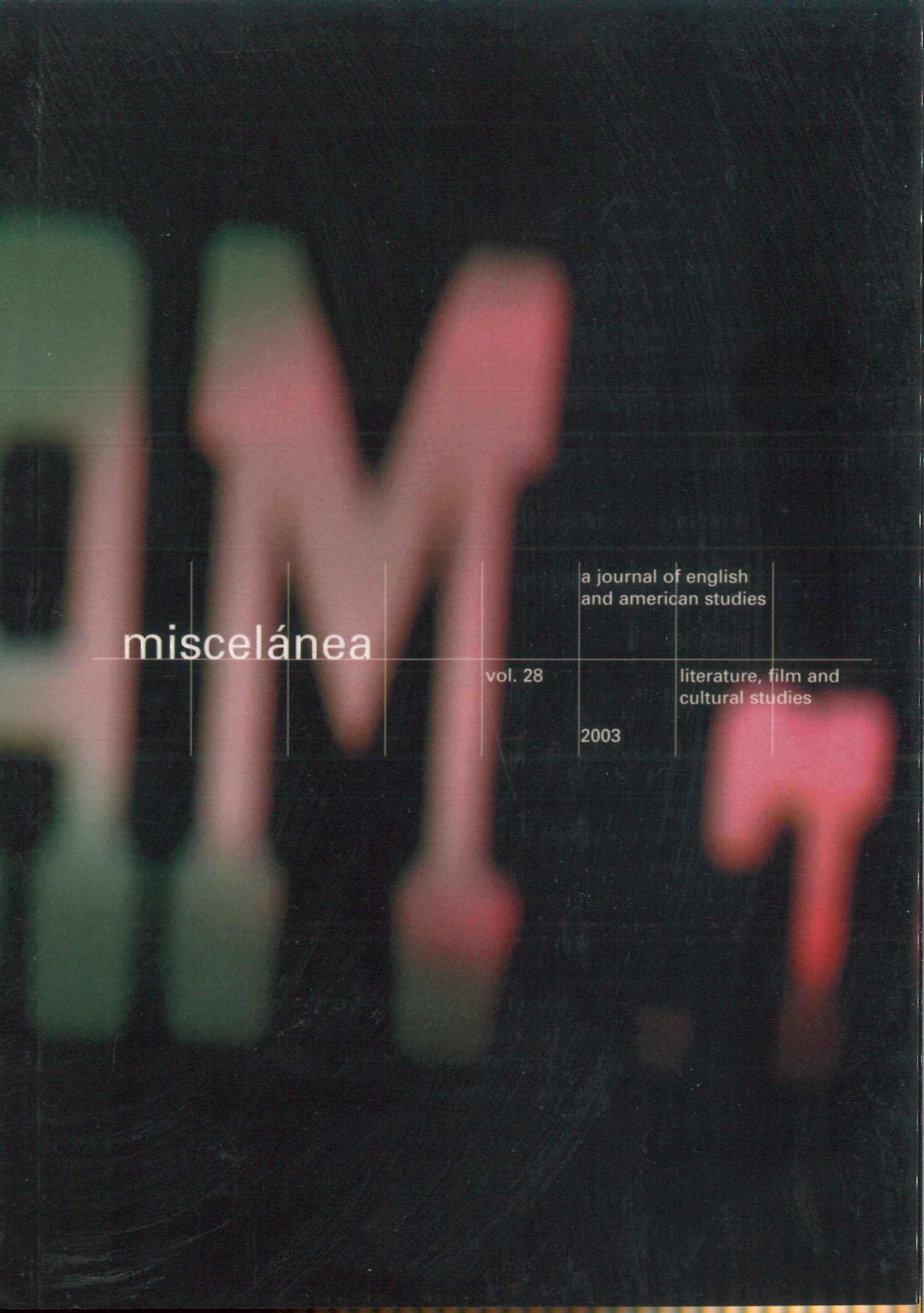Sentimental Comedy in Martin Amis's "State of England" and "The Coincidence of the Arts"
DOI:
https://doi.org/10.26754/ojs_misc/mj.200310218Palabras clave:
Comedia sentimental, Ficción sobre la condición de Inglaterra, Flyting, Violencia apocalíptica, Reconciliación agonísticaResumen
Este artículo examina las analogías que "State of England" y "The Coincidence of the Arts" -dos relatos extraídos de Heavy Water and Other Stories (1998) de Martin Amis- guardan con las convenciones de la comedia sentimental para arrojar luz sobre las elecciones estéticas y éticas de Amis. Apoyándose en herramientas como el "flyting", estos relatos reelaboran cómicamente la "piedad por los pobres" típica de las obras sentimentales, al tiempo que toman prestado del género de ficción de la "condición de Inglaterra". Sin embargo, este barniz cómico no puede ocultar los casos apocalípticos de abuso infantil y violencia doméstica, topoi de las obras sentimentales. No obstante, la fatalidad inminente se ve socavada por patrones irónicos de reconciliación que concuerdan con el optimismo cósmico promovido en última instancia por las obras sentimentales. Dado que estos desenlaces se consiguen a través de la negatividad retórica, los textos de Amis también son deudores de la retórica sentimental, una herencia que delata un resurgimiento del sentimentalismo en la obra de un autor injustamente estereotipado como profeta de la fatalidad.
Descargas
Citas
ALEXANDER, Victoria N. "Martin Amis: Between the Influences of Bellow and Nabokov". The Antioch Review (Fall 1994): 580-590.
AMIS, Martin. Dead Babies. (1975) 1990. Harmondsworth: Penguin.
—. Einstein's Monsters. (1987) 1999. London: Vintage.
—. Experience. 2000. London: Jonathan Cape.
—. Heavy Water and Other Stories. (1998) 1999. London: Vintage.
—. The Information. (1995) 1996. London: Flamingo.
—. Koba the Dread: Laughter and the Twenty Million. 2002. London: Jonathan Cape.
—. London Fields. (1989) 1999. London: Vintage.
—. The Rachel Papers. (1973) 1984. Harmondsworth: Penguin.
—. Success. (1978) 1985. Harmondsworth: Penguin.
—. The War Against Cliche: Essays and Reviews 1971-2000. 2002. London: Vintage.
ELLIS, Frank H. 1991. Sentimental Comedy: Theory and Practice. Cambridge: Cambridge U. P.
GARNER, Thurmon.1983. "Playing the Dozens: Folklore As Strategies for Living". Quarterly Journal of Speech 69 (1983): 47-57.
LODGE, David. (1992). 1998. The Art of Fiction. Harmondsworth: Penguin.
—. Consciousness and the Novel. 2002. London: Secker and Warburg.
MILLER, Karl. 1987. Doubles: Studies in Literary History. Oxford: Oxford U.P.
PARKS, Ward. 1986. "Flyting, Sounding, Debate: Three Verbal Contest Genres". Poetics Today 7.3 (1986): 439-458.
SHONE, Tom. 1998. "Through the Gearbox". Rev. of Heavy Water and Other Stories, by Martin Amis. Times Literary Supplement 25 Sept. 1998: 21.
SHUSTERMAN, Ronald. 2002. "And Now for Something Completely Different: Contradiction and Aesthetic Experience". Etudes britanniques contemporaines 22 (juin 2002): 115-128.
SMYTH, Thomas. 2000. Rev. of Heavy Water and Other Stories, by Martin Amis. World Literature Today 74.1 (Winter 2000): 155.
TODD, 'Janet. 1986_ Sensibility: An Introduction. Methuen: London.
WALTER, Natasha. 1998. "Fat Men, Thin Lives". The New Statesman. Rev. of Heavy Water and Other Stories, by Martin Amis. New Statesman 25 Sept. 1998: 81-83.
WHEATCROFT, Geoffrey. 2000. "What Kingsley Can Teach Martin". Rev. of Experience, by Martin Amis. The Atlantic Monthly Sept. 2000: 110-11.8.
Descargas
Publicado
Cómo citar
Número
Sección
Licencia

Esta obra está bajo una licencia internacional Creative Commons Atribución-NoComercial 4.0.


